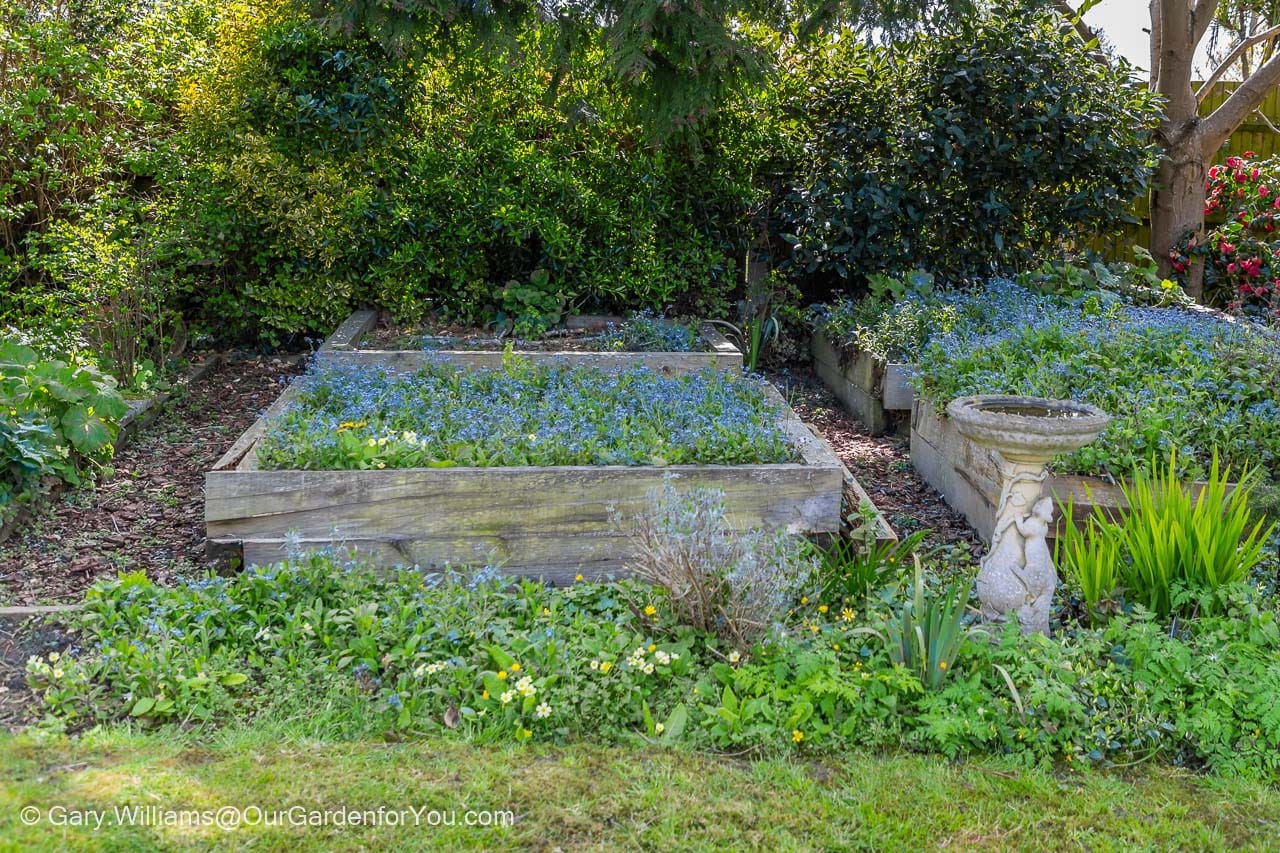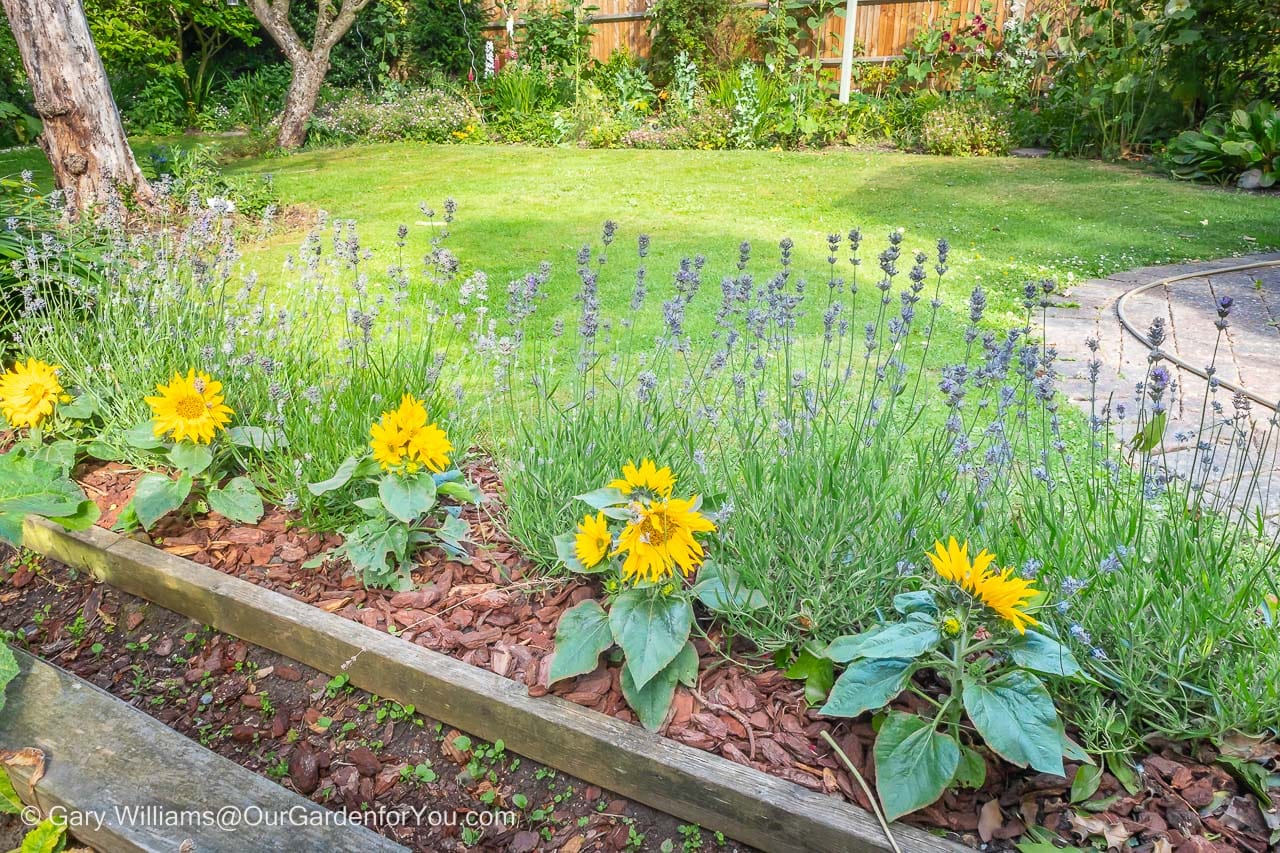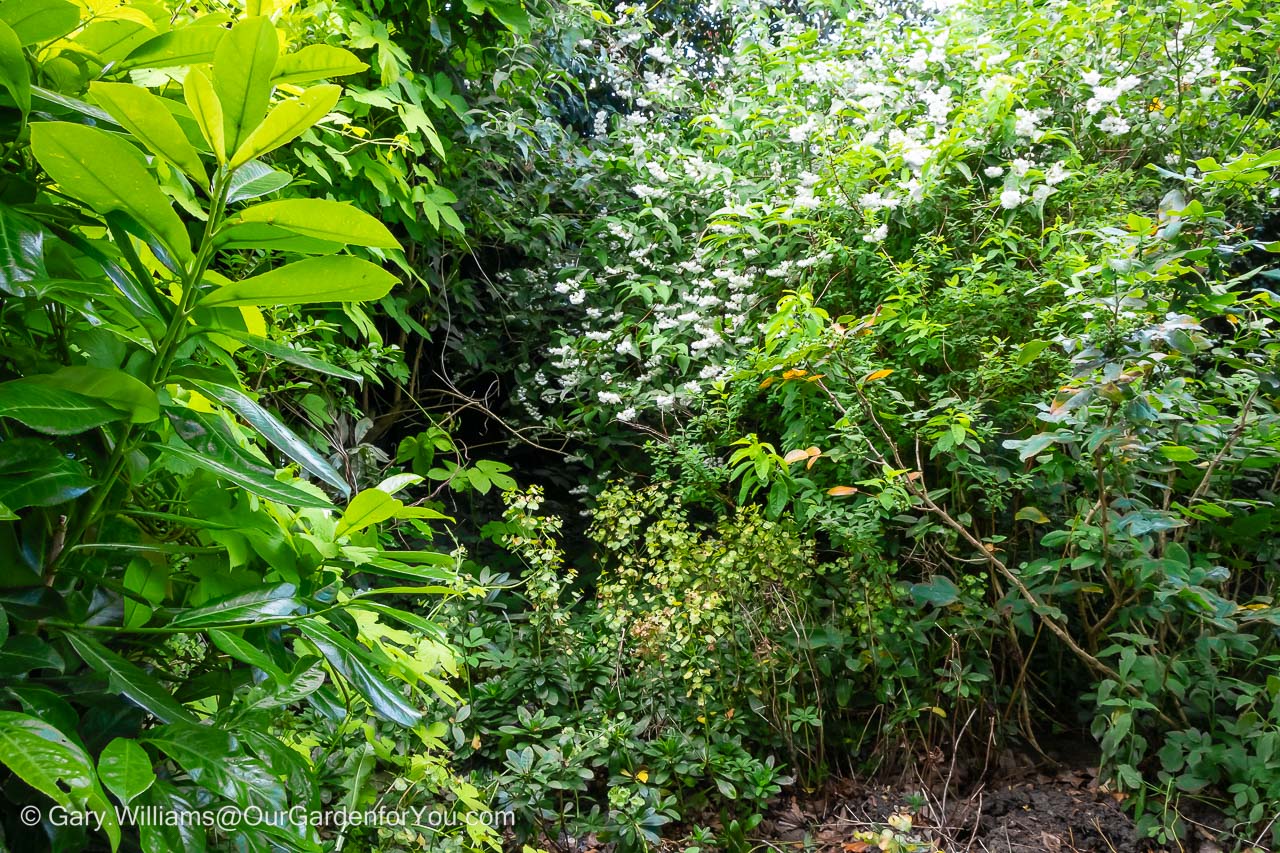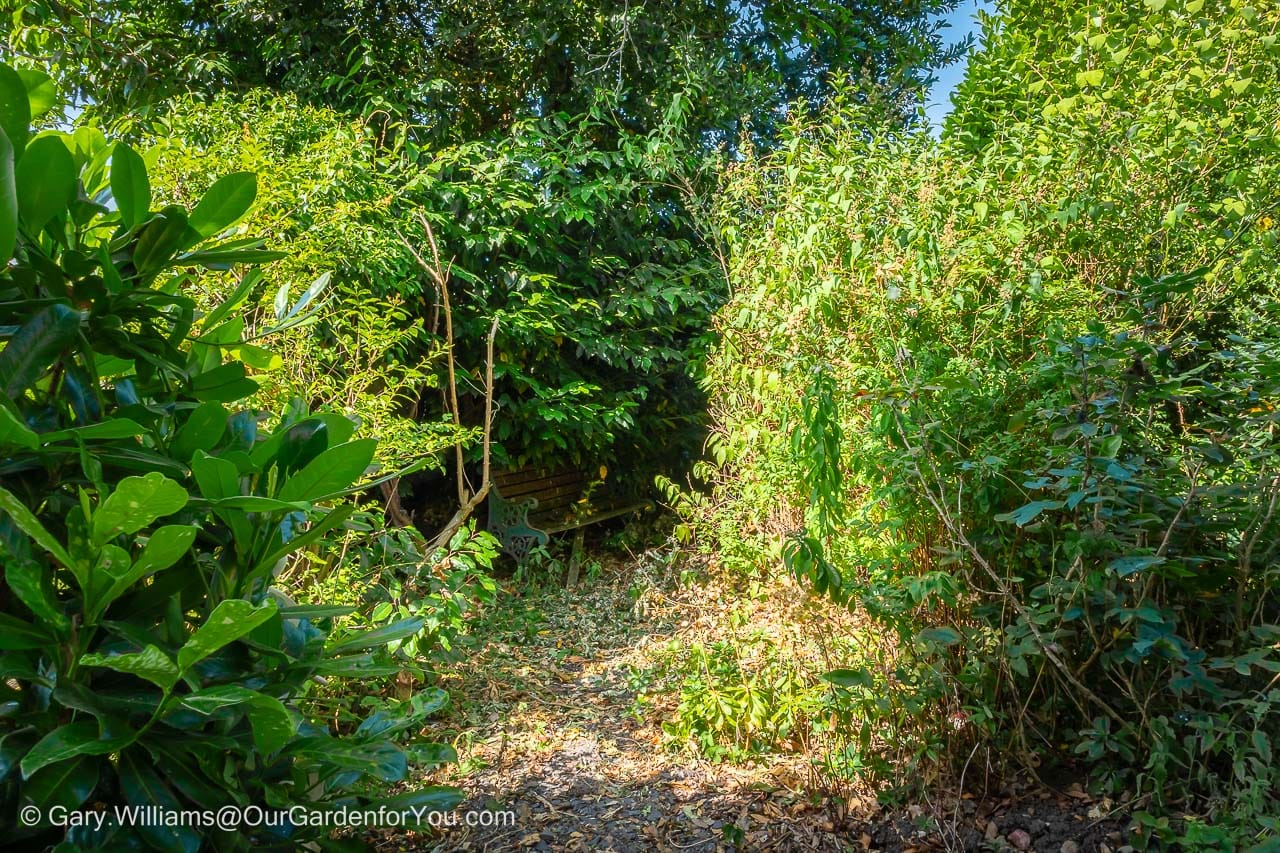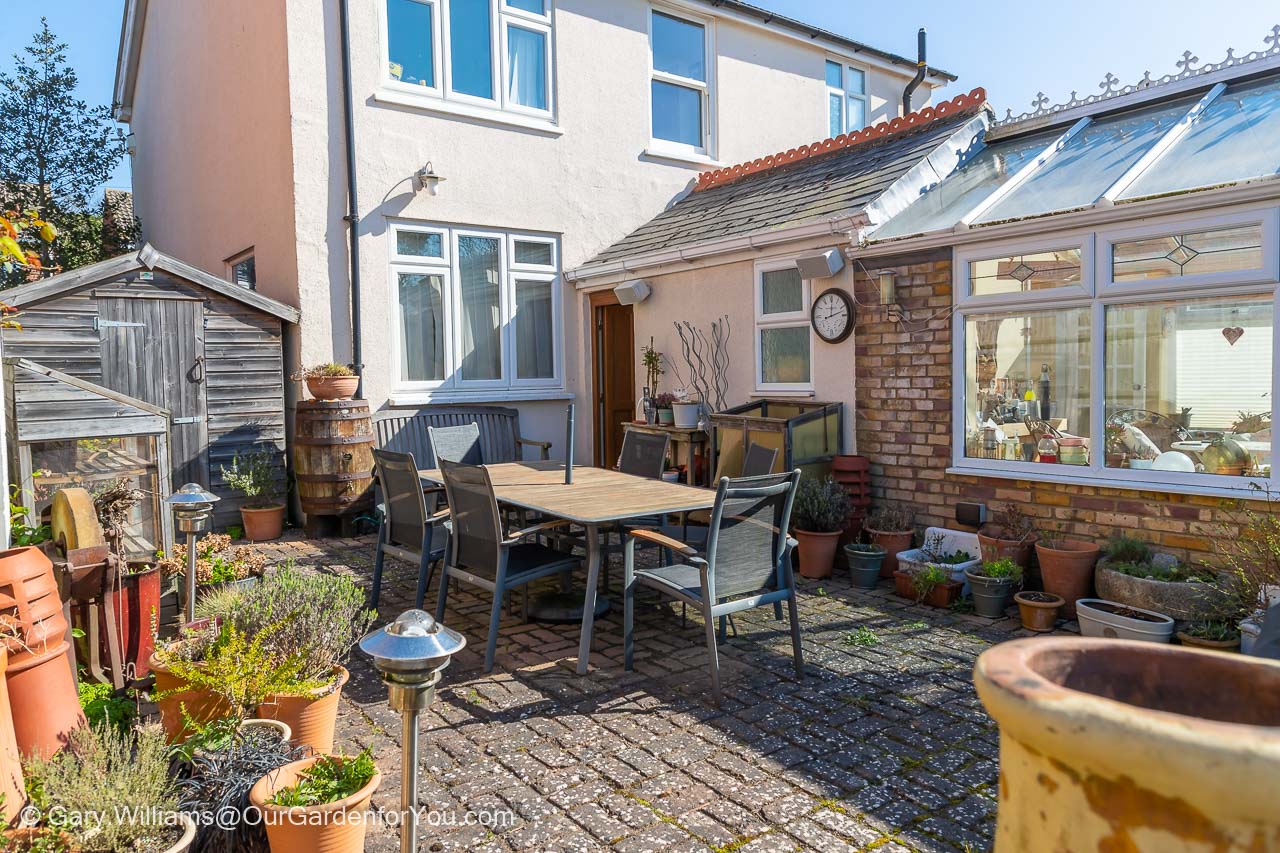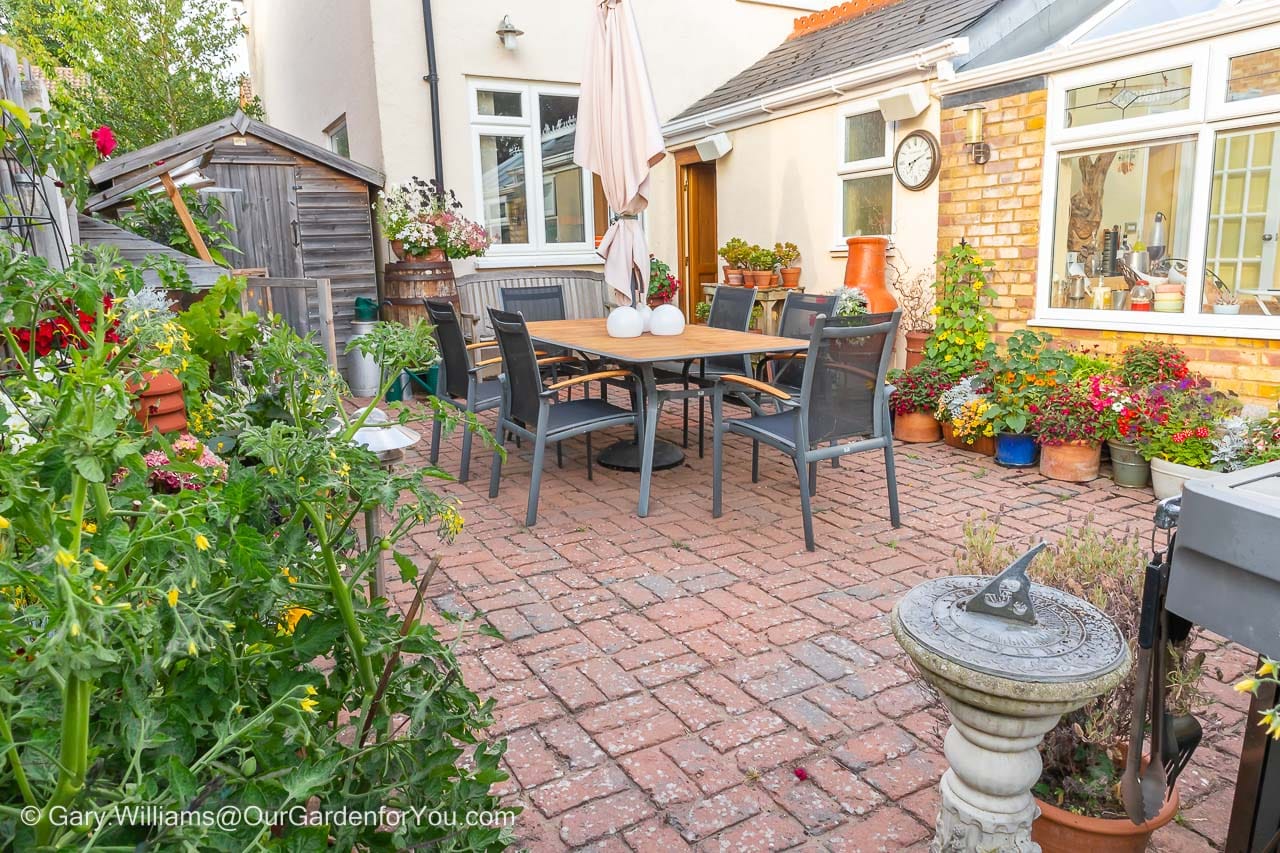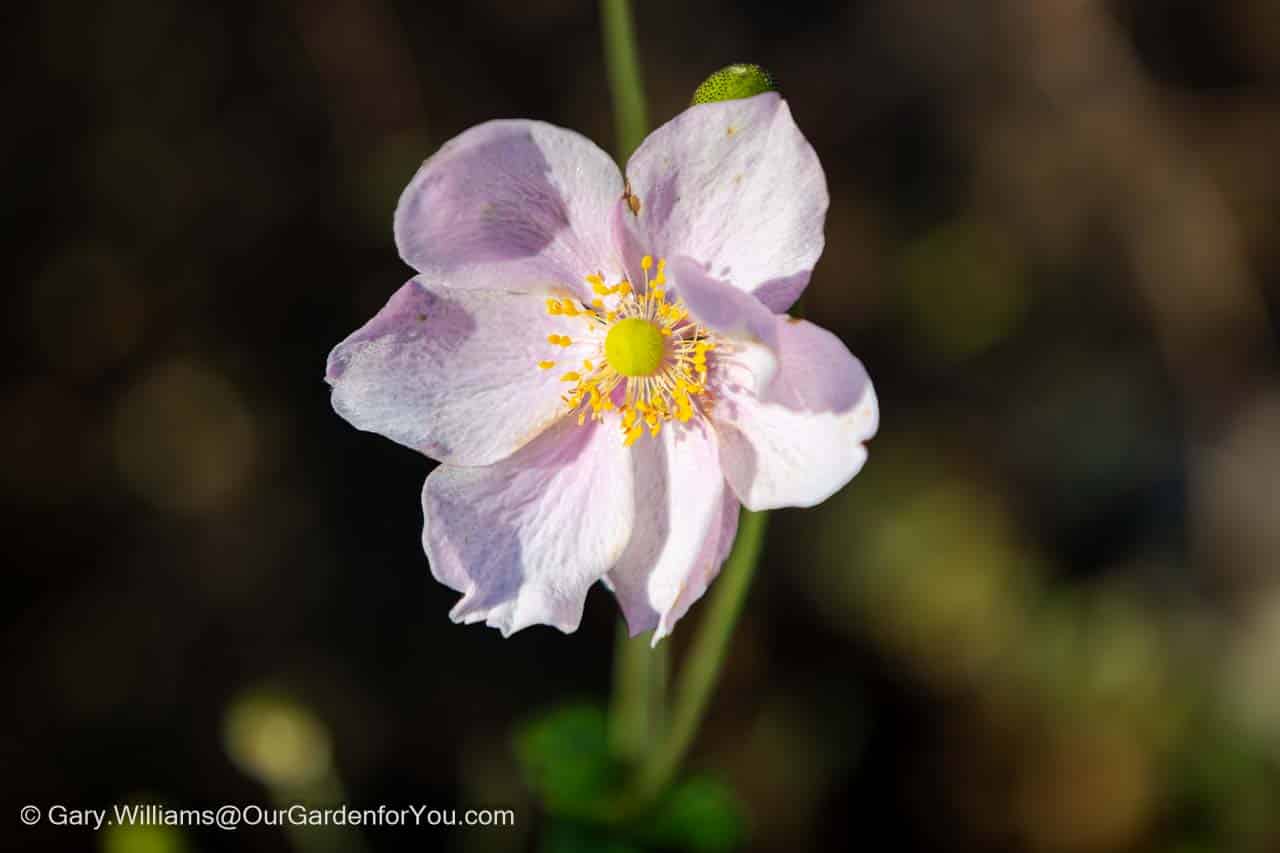Some success and some failures
Well, Rome wasn’t built in a day, as they say, nor was our flourishing English cottage garden.
But to be perfectly honest, I’m pleased with how it is progressing, and it certainly looks better than it did this time last year.
I’ve previously mentioned that we had neglected our garden over the last couple of years. There are certain trees, shrubs and flowers that are taking over and swallowing up other plants. It is amazing how quickly it can get out of hand.
It rapidly turned into a daunting task, and I just didn’t know where to start. Our English country garden is quite large, around 50 feet x 74 feet (15m x 22.5m) and, in some places, high maintenance.
To enable us to tackle the garden, understand where our priorities needed to lie and rough out some long-term plans, we needed to break the garden down into sections.
Some sections of the garden are progressing well; others are long-term projects and need time and further planning. It’s also a good idea to gain some quick wins; everyone likes to see positive progress.
Pinterest?
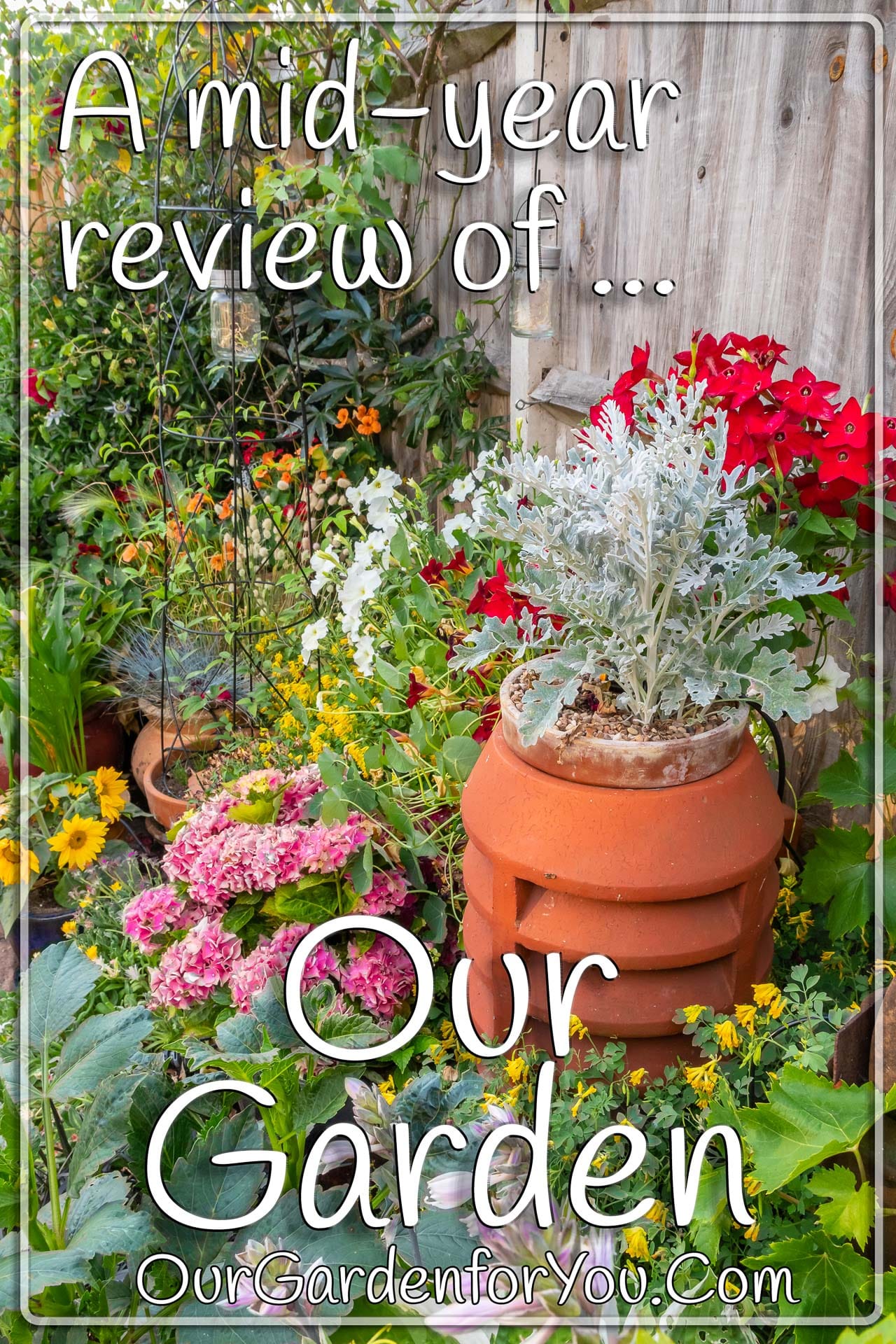
Tackling our Cottage Garden
Was it a blooming successOne of the larger tasks to tackle was our cottage garden border which is 3.2m x 13.8m. This border had been gradually taken over by geraniums and forcefully spreading perennial sunflowers. I don’t mind either of these plants in moderation, but you can have too much of a good thing,
We weren’t starting with a clean slate in the cottage garden border, as there were still quite a few plants we wanted to keep. Like hollyhocks, foxgloves, poppies, iris, and crocosmia, to name a few.
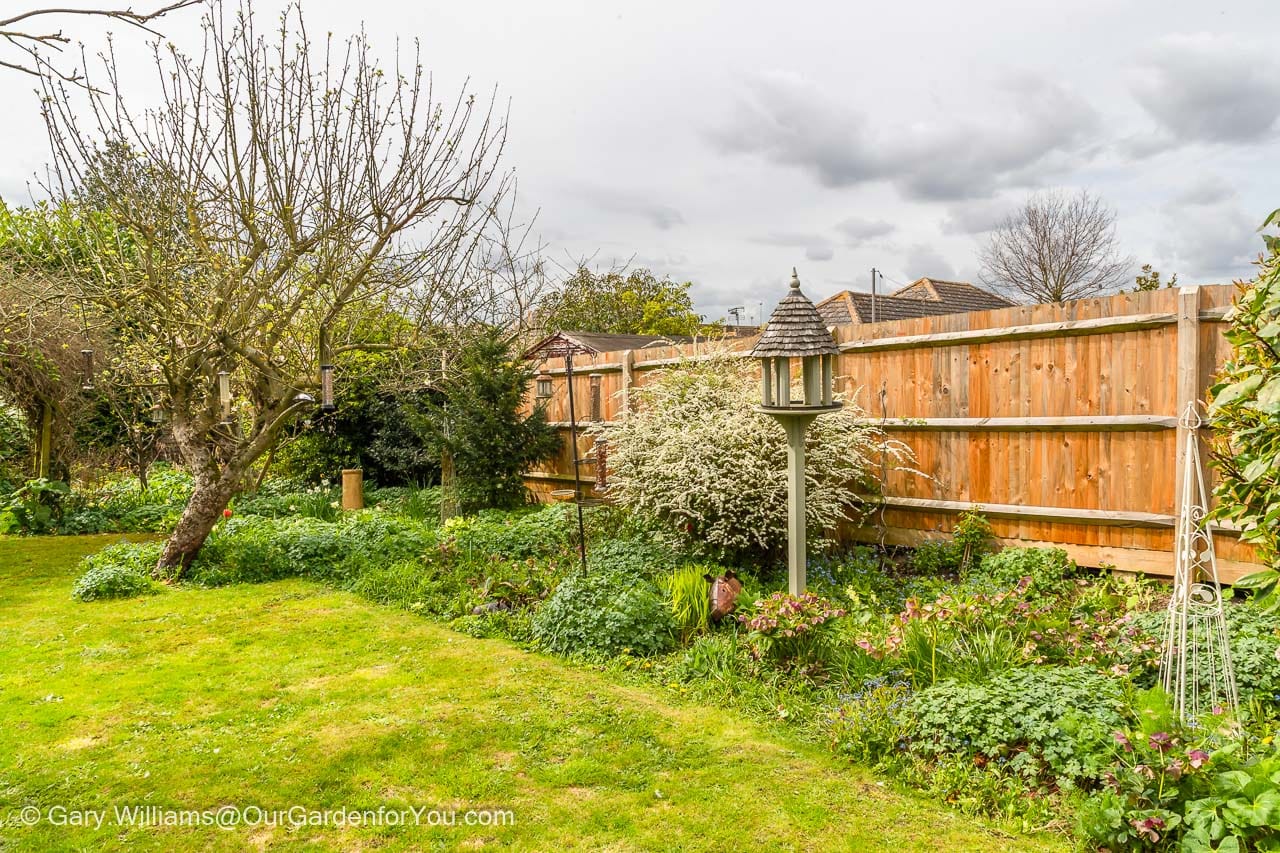
Our plan is to have a gorgeous, traditional deep cottage garden bed full of perennial and annual flowers mixing with each other and creating a multicoloured swathe of planting. Which was not only loved by us but also the visiting wildlife.
We live in Kent in the southeast of the UK, known as the ‘Garden of England’ and with the number of nurseries and garden centres around, I’m not surprised. There are some delightful garden centres to visit; however, I have found a local nursery that is fantastic for perennials. It is called Wood Cottage Nursery near Paddock Wood. It may be slightly hap-hazard with its organisation. Still, it is incredibly good value, and the choice of plants is impressive.
The reason I mention this is because it’s where I have bought most of my new perennials to fill out the cottage garden bed.
We started to plant out some of our new purchases in mid-April, so I had my fingers crossed that we may see a wash of colour this year.
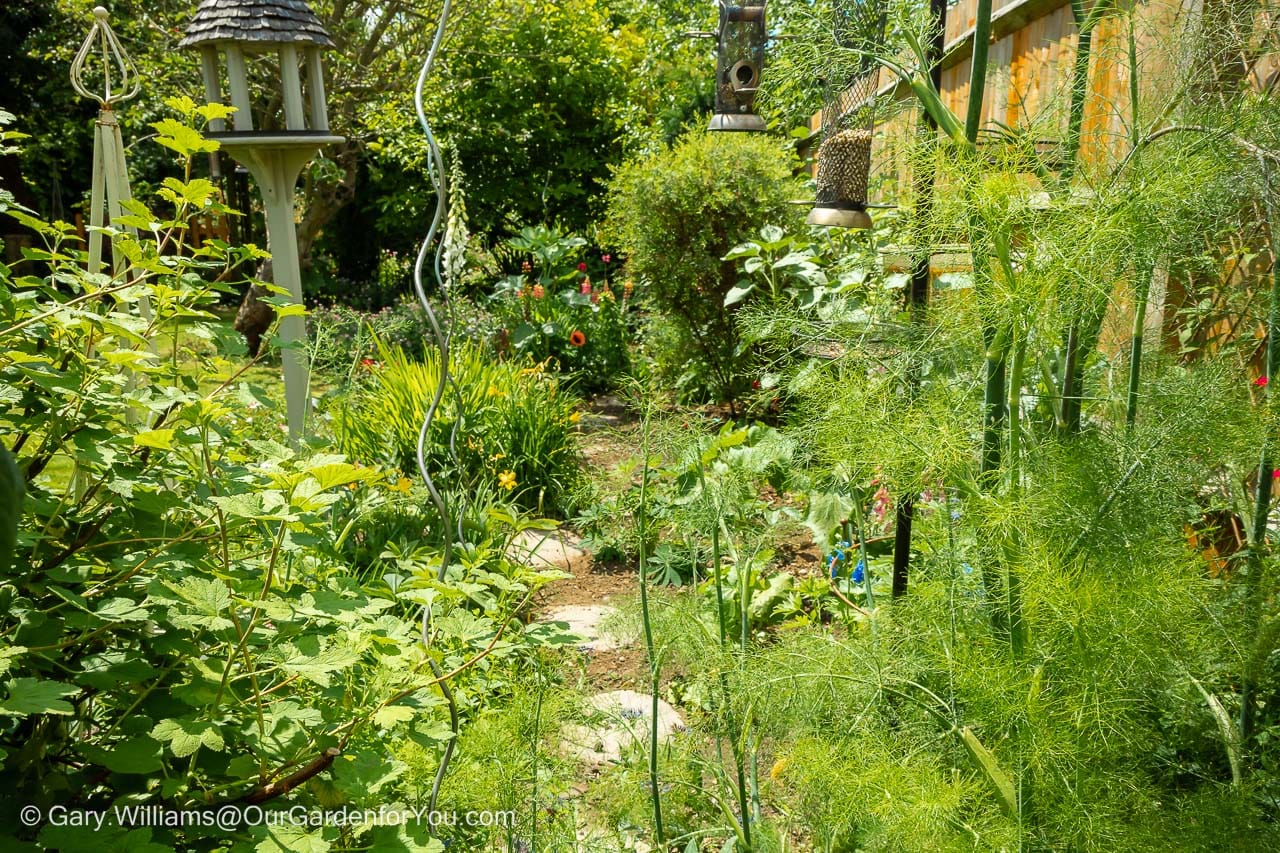
Early in planning this garden bed, we decided to have a steppingstone path weaving through it. There were a couple of reasons for this, mainly because the bed was reasonably deep. It meant it was easier to reach the back without trampling on plants and looked aesthetically pleasing.
Fast forward a few months, and after we planted a total of 35 new perennials and copious amounts of border plants which I grew from seed, it was certainly looking better. I must admit I’m a little disappointed as I thought the new perennials, I purchased this year would have bloomed more. But hey, I guess I was slightly optimistic.
So, in my opinion, the cottage garden bed is an overall win. However, it’s now me against the rapidly encroaching weeds.
A sliver of Provence in Kent
What happened to the sunflowers?So, even though the sunflowers are a little short (just like my good self), they look lovely with our six balls of English Lavender Munstead.
The only thing we may change in this bed is the bark mulch. It doesn’t appear to suppress all the weeds, and the blackbirds seem to like it and are flicking it everywhere. So, we may swap it for an attractive gravel/fine pebble top dressing
When the secret garden becomes Narnia
Watch this spaceOne of our larger tasks Is the Secret Garden section. We’ve started to tackle this area at the rear of the garden; however, it’s a sizeable job, but you must start somewhere.
We’ve cleared some of the shrubbery away and partially dug over areas of the central bed, so there are certainly some improvements. It’s a matter of clearing and pruning a section and working your way along to the next shrub.
We’ve even invested in a new Ryobi cordless hedge trimmer to help us with the job, and it is working a treat. It’s making light work of an otherwise quite onerous task.
I will ask Gary to provide a review as he loves all things gadgetry, hence the nickname 'Gadget Gary'
The Secret Garden section also has a wildlife pond that we haven’t started to clear and refresh yet.
Consequently, the Secret Garden plot is very much “watch this space”.
Our vibrant courtyard patio
It’s all about TLCNow the patio is awash with colour; there are plants from last year that have re-ignited, particularly fuchsias, a few new bedding plant purchases, and flowers I grew from seed.
The patio certainly doesn’t lack colour anymore.
Early in the year, Gary jet-washed the rustic red-brick courtyard tiles, which gave them the lift they needed. Also, Gary embarked upon a mini-project and upcycled our previously sad-looking chimenea. It is now a more pleasing shade of terracotta and overflowing with flowers.
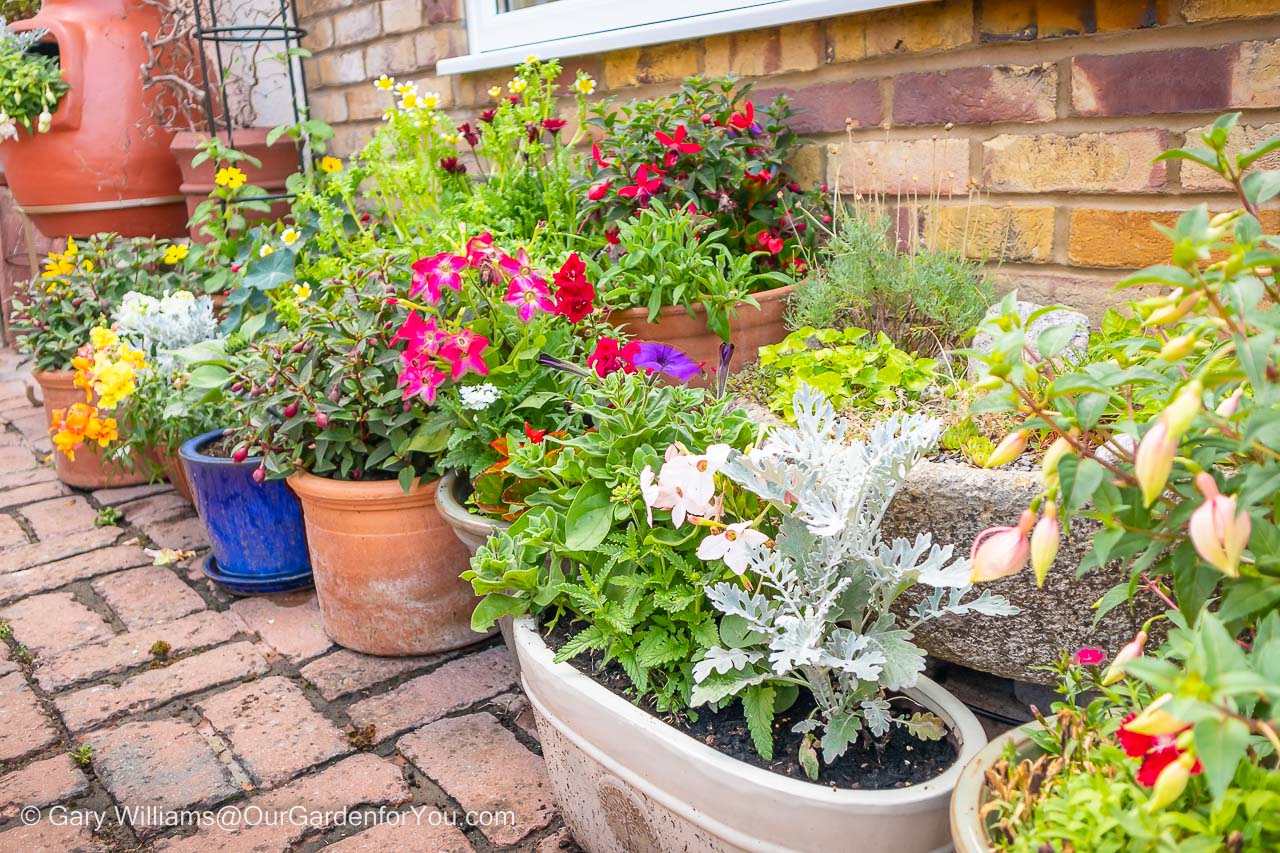
Another challenge Gary had this year was to install an irrigation system around our patio. As we often travel away for our other website, ‘Our World for You,’ we didn’t want all our hard work nurturing our plants to go to waste. A few days without water and our tomato plants would look distraught.
So, it was a bit of a challenge, and elements still need to be fine-tuned; however, the irrigation system works a treat, and we can go away without fear of our plants getting thirsty.
Spring cleaning the potting shed
The composters are coming to lifeOne of the first projects this year was to clear and reorganise my potting shed, I’m not saying it is perfect, but it is so much better than it was.
I now know where everything is and no longer have to wonder whether I have specific items or tools. Clearing the potting shed also gave me the motivation to sow heaps of seeds, and this year I grew lots of flowers rather than vegetables, as I have done in previous years.
Though I always want to have tomato and chilli plants on my patio, I know technically, tomatoes are fruit.
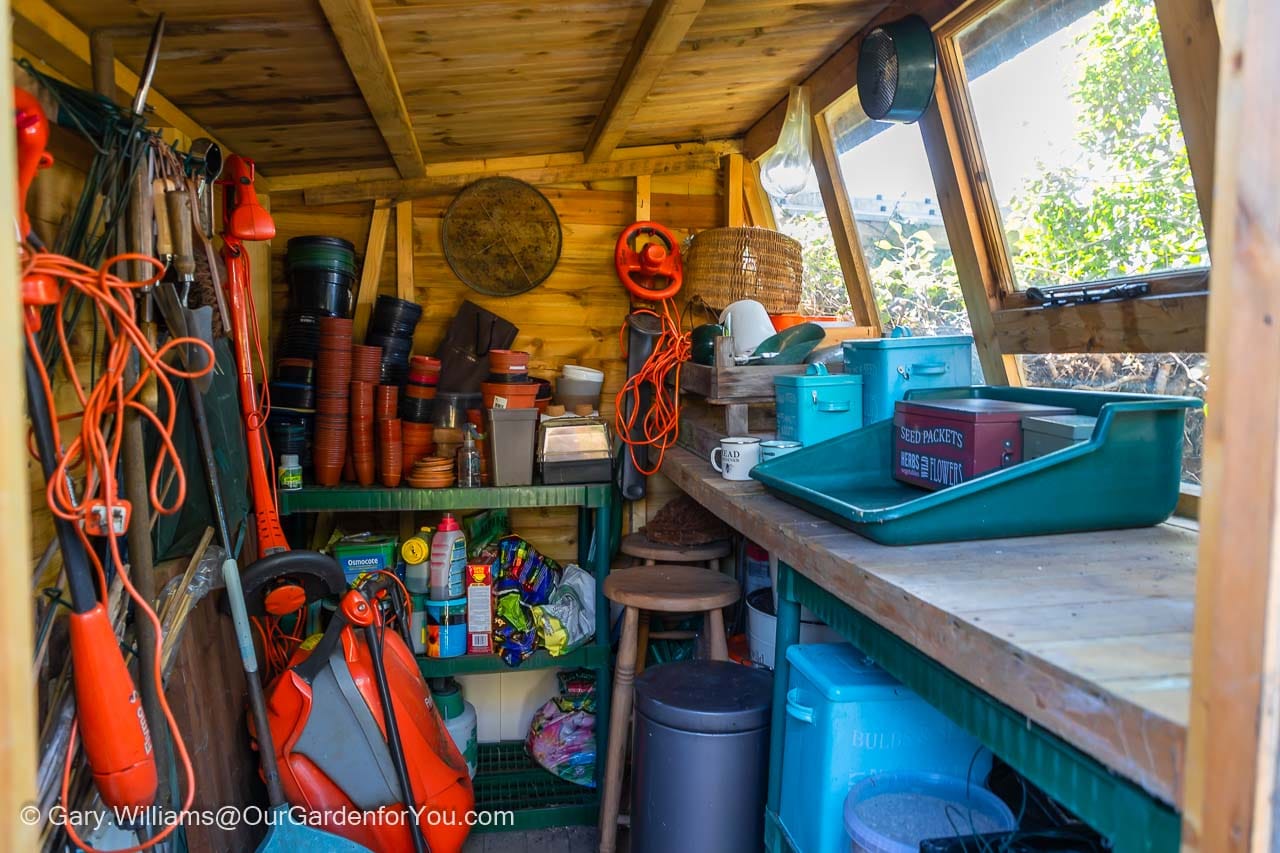
Next to the potting shed is our working area; it’s a polite way of saying where we keep some of our garden waste and less appealing features of a garden.
In the working section is where we also store our composters. And now I must mention that our composters have not been working over the years, but it seems we may have turned a corner. Gary has dug them over and ensured that there are roughly equal amounts of brown and green waste.
Fingers crossed, this seems to have done the job, and they have kicked into action.
A lot more work needs to be done
From the shady spots to the raised bedsThe other section, which I refer to as our Woodland Walk, needs more attention; the hedge trimmer has been helpful, if only to tidy up some of the shrubs.
The Woodland Walk is quite a shady area, so it requires specific planting, although it certainly likes ferns. We have another area which we call Lawn Shady, and a small section we refer to as Slim Shady. In hindsight, Slim Shady should now be referred to as Slim Sunny, as it does appear to get a lot of sun in the latter part of the day.
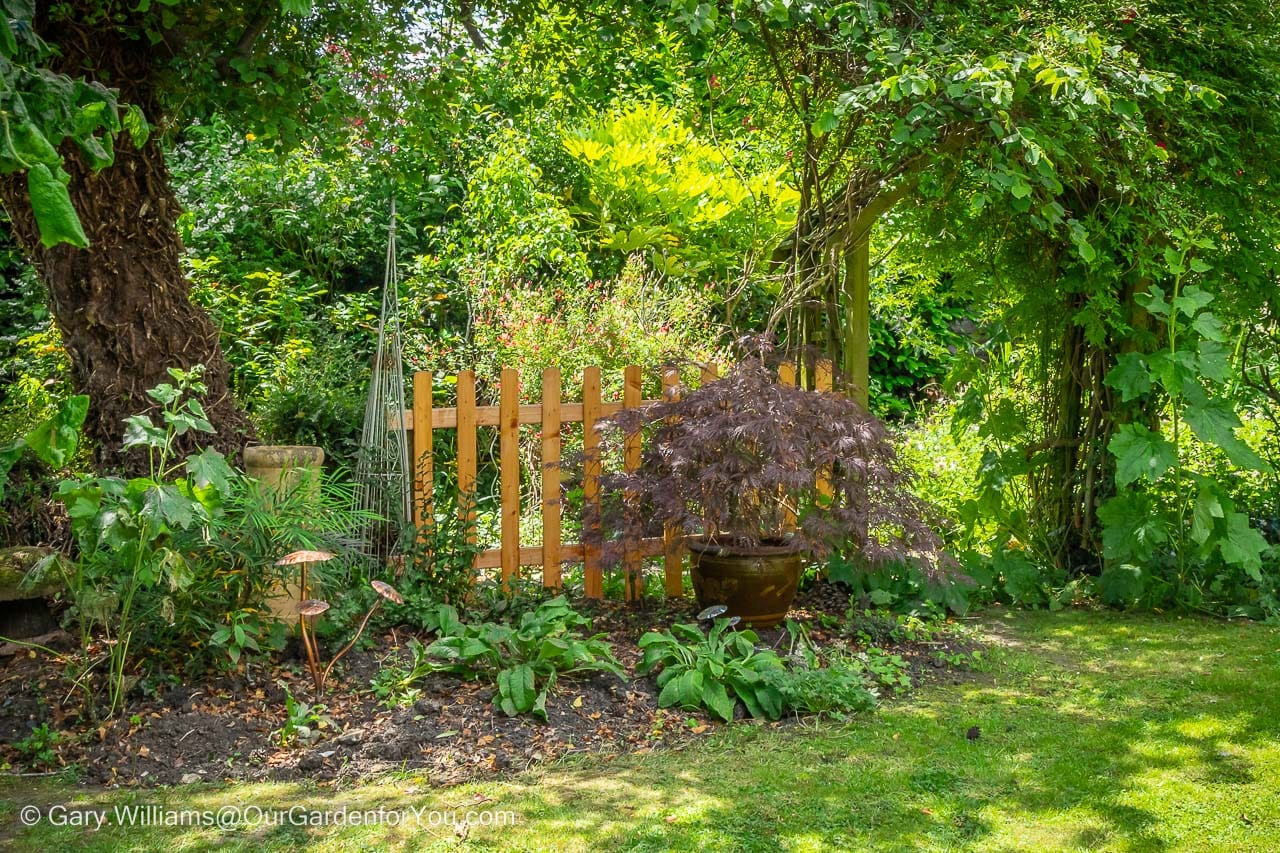
Lawn Shady has been given a bit of a revamp; we cleared out the rampant geraniums and rogue saplings that have seeded themselves. Replaced the picket fence and added a couple of shade-loving plants.
Also, we keep our beautiful Acer in a pot in the Lawn Shady section. It gets dappled sunlight which protects the delicate leaves of the Acer, and it loves it there.
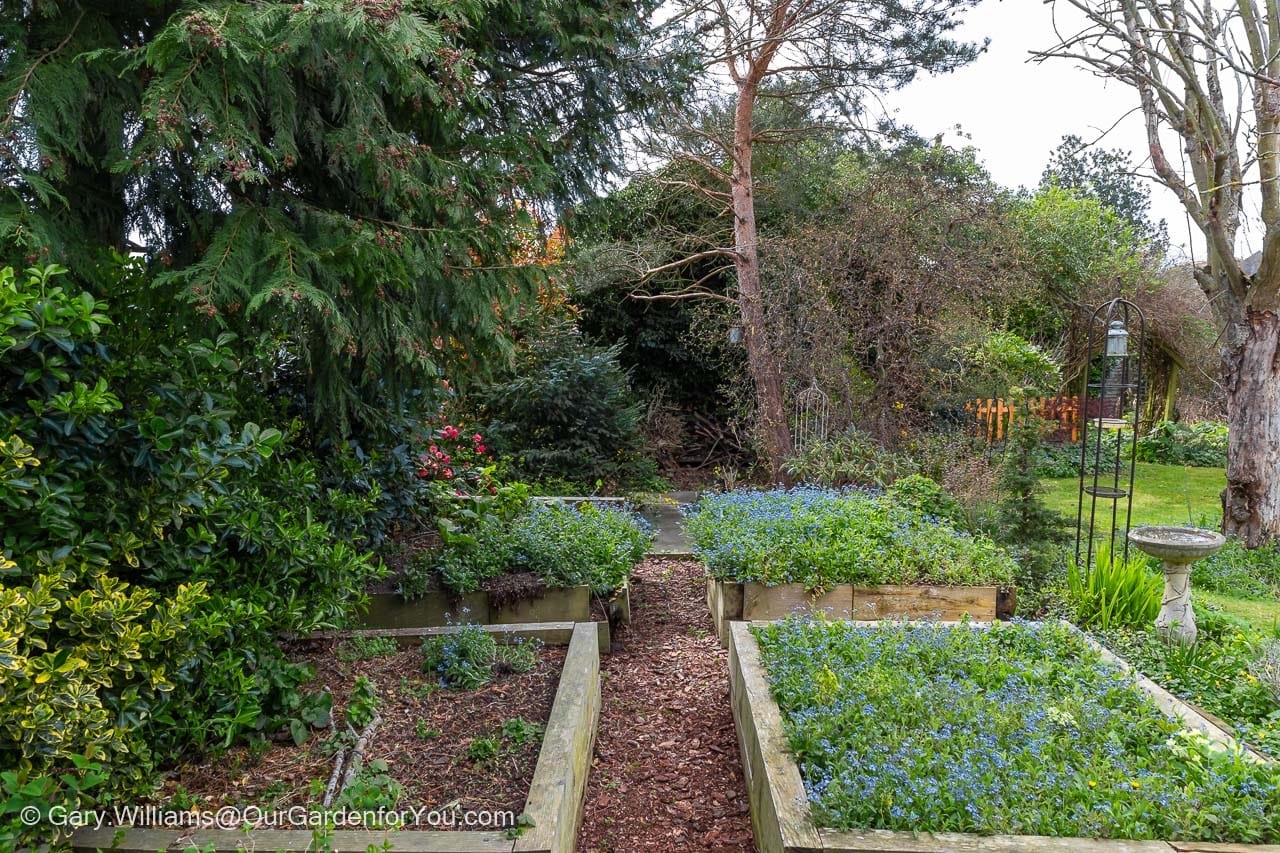
The last section to touch upon is the raised beds. The raised beds were used for growing vegetables; however, over the years, they gradually fell apart as they weren’t lined properly. We need to prune the shrubs that border the beds and decide how we are going to proceed. I’m still undecided about the long-term plan here as I would still like raised beds for vegetables but perhaps not four nor made of wood.
Any suggestions? I would love to know.
* This post may contain links to affiliated sites where we earn a small commission at no additional charge to you.
